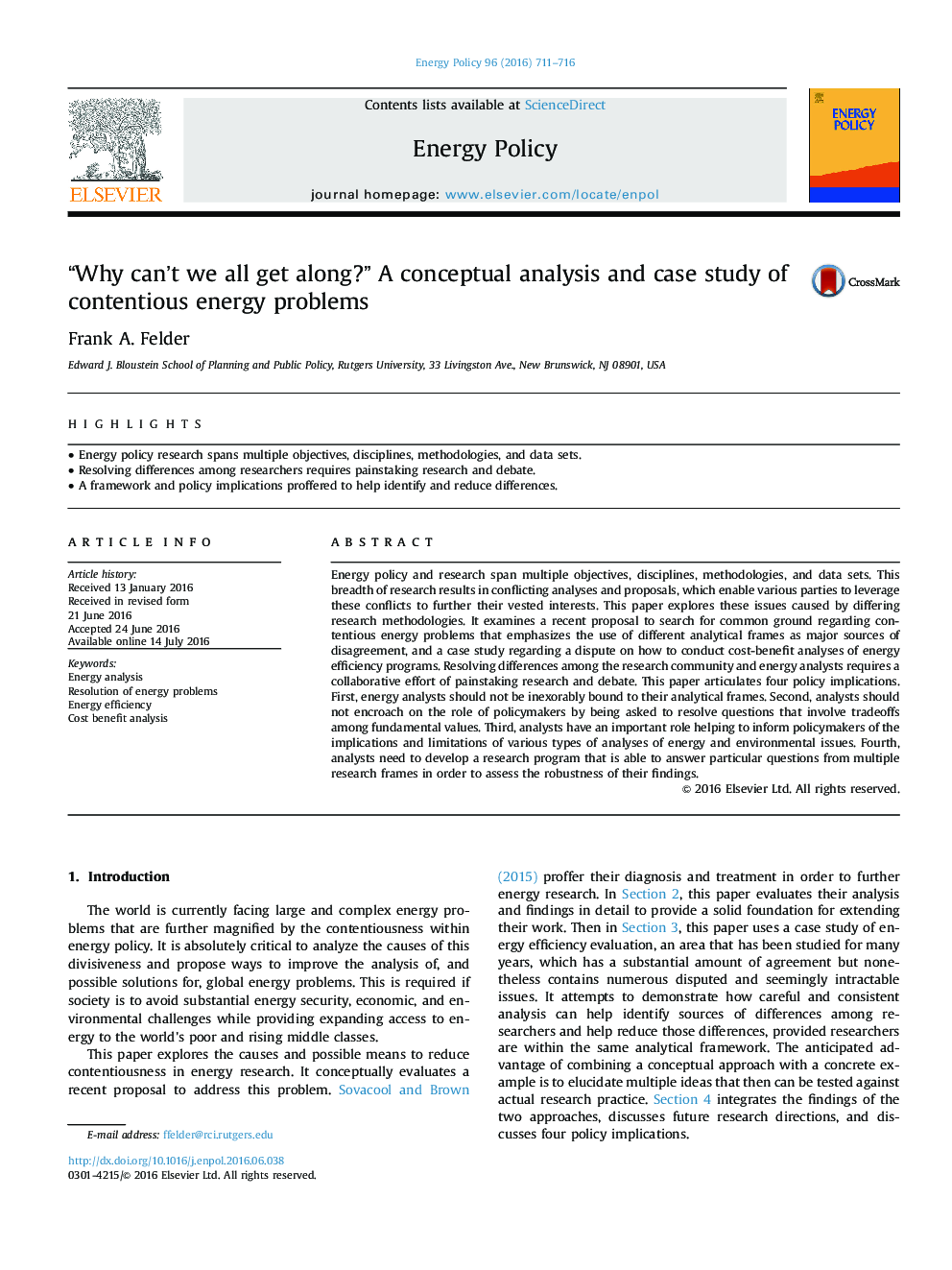| Article ID | Journal | Published Year | Pages | File Type |
|---|---|---|---|---|
| 7398876 | Energy Policy | 2016 | 6 Pages |
Abstract
Energy policy and research span multiple objectives, disciplines, methodologies, and data sets. This breadth of research results in conflicting analyses and proposals, which enable various parties to leverage these conflicts to further their vested interests. This paper explores these issues caused by differing research methodologies. It examines a recent proposal to search for common ground regarding contentious energy problems that emphasizes the use of different analytical frames as major sources of disagreement, and a case study regarding a dispute on how to conduct cost-benefit analyses of energy efficiency programs. Resolving differences among the research community and energy analysts requires a collaborative effort of painstaking research and debate. This paper articulates four policy implications. First, energy analysts should not be inexorably bound to their analytical frames. Second, analysts should not encroach on the role of policymakers by being asked to resolve questions that involve tradeoffs among fundamental values. Third, analysts have an important role helping to inform policymakers of the implications and limitations of various types of analyses of energy and environmental issues. Fourth, analysts need to develop a research program that is able to answer particular questions from multiple research frames in order to assess the robustness of their findings.
Related Topics
Physical Sciences and Engineering
Energy
Energy Engineering and Power Technology
Authors
Frank A. Felder,
